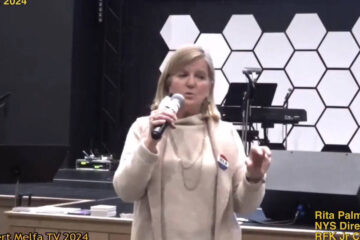The Southern Poverty Law Center (SPLC), AFL-CIO and Economic Policy Institute (EPI) denounced efforts by some federal lawmakers to gut new Department of Labor regulations that will protectU.S.workers and foreign guestworkers.
Several members of Congress are attempting to stop the rules from being implemented. Their actions will eviscerate important protections for temporary foreign workers and make it easier for employers to hire these workers instead ofU.S.workers.
“Let’s be clear: Any lawmaker who supports this amendment is supporting less access to jobs for U.S. workers, and encouraging the exploitation of the foreign workers filling those positions,” said Mary Bauer, legal director for the Southern Poverty Law Center. “Our country is better than this. Members of Congress must oppose this effort to gut these important regulations.”
In February, the U.S. Department of Labor announced new regulations governing the H-2B temporary foreign labor, or “guestworker,” program. Only days before the new regulations were scheduled to go into effect, a number of businesses and interest groups, including the U.S. Chamber of Commerce, got an injunction blocking enactment of the rules. The Department of Labor has appealed this decision. The appeal is pending before a federal court inAtlanta.
Also, last fall, the department issued a rule that would prohibit employers from legally underpaying H-2B workers, but a bipartisan group of legislators voted to postpone the rule’s implementation for a year.
As part of the coordinated effort to prevent these regulations from taking effect, Sen. Richard Shelby (R-Ala.) introduced an amendment to kill both rules. The amendment was adopted by the Senate appropriations committee last month. In the other chamber, a House subcommittee approved a draft bill last week that included language that would effectively kill the regulations by denying funding and barring them from taking effect. The full committee may vote on the bill as early as Wednesday.
“Any attempt to gut the H-2B rule is a shameful effort by politicians who are more invested in catering to business interests than protecting the welfare of workers,” said Ana Avendaño, AFL-CIO director of immigration and community action.
The H-2B guestworker program is a decades-old government program created to allowU.S.businesses to bring in temporary workers when they can’t find enough workers here to fill low-skill, non-farm jobs. H-2B workers are commonly employed in the landscaping, forestry, construction, hospitality and seafood processing industries. The program’s structure, however, lends itself to pervasive abuse, leaves many workers without sufficient protections under the law and leads to the displacement ofUnited Statesworkers.
«All of the data I’ve looked at suggest that employers have been using the current H-2B rules as a way to degrade the wages of U.S. workers in major industries such as landscaping, forestry, construction, seafood processing and hospitality,» said Daniel Costa, immigration policy analyst for EPI. “Most of these industries are suffering from high unemployment rates and stagnant wages. The Department of Labor’s new H-2B rules are modest and simply ensure a fair wage is paid to all workers and that millions of unemployed workers are adequately recruited.”
The new department rules seek to provide increased protections to both H-2B guestworkers and toU.S.workers seeking work opportunities in industries where H-2B workers are employed. The rules would accomplish this by providingU.S.workers with increased access to jobs and equal rights on the job when they are performing the same work as H-2B workers. They also protect H-2B workers from exploitative working conditions.
The new rules would also provide important protections to prevent human trafficking, debt bondage, fraud, the charging of exorbitant fees by overseas recruiters, gross wage underpayment and other severe abuses. A 2007 SPLC report, Close to Slavery, detailed the abuses that are part of the flawed H-2B program. Many of the new regulations mirror the report’s recommendations.



